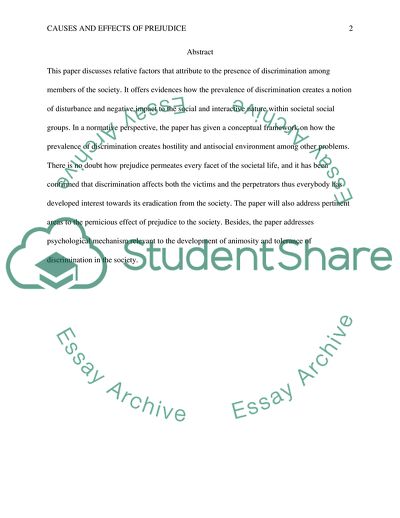Cite this document
(Causes and Effects of Prejudice: Social Psychology Perspective Coursework Example | Topics and Well Written Essays - 2250 words, n.d.)
Causes and Effects of Prejudice: Social Psychology Perspective Coursework Example | Topics and Well Written Essays - 2250 words. https://studentshare.org/psychology/1825852-causes-and-effects-of-prejudice-social-psychology-perspective
Causes and Effects of Prejudice: Social Psychology Perspective Coursework Example | Topics and Well Written Essays - 2250 words. https://studentshare.org/psychology/1825852-causes-and-effects-of-prejudice-social-psychology-perspective
(Causes and Effects of Prejudice: Social Psychology Perspective Coursework Example | Topics and Well Written Essays - 2250 Words)
Causes and Effects of Prejudice: Social Psychology Perspective Coursework Example | Topics and Well Written Essays - 2250 Words. https://studentshare.org/psychology/1825852-causes-and-effects-of-prejudice-social-psychology-perspective.
Causes and Effects of Prejudice: Social Psychology Perspective Coursework Example | Topics and Well Written Essays - 2250 Words. https://studentshare.org/psychology/1825852-causes-and-effects-of-prejudice-social-psychology-perspective.
“Causes and Effects of Prejudice: Social Psychology Perspective Coursework Example | Topics and Well Written Essays - 2250 Words”. https://studentshare.org/psychology/1825852-causes-and-effects-of-prejudice-social-psychology-perspective.


